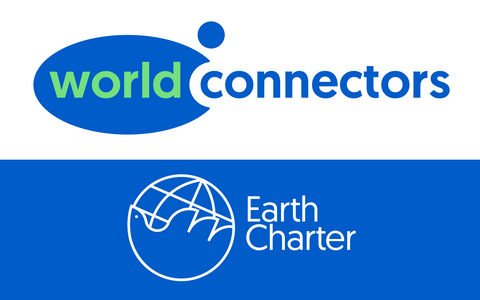From 26 to 29 September 2013, an amazing sustainability convention was organized on the beautiful island of Terschelling in the North of the Netherlands: Springtij Festival. Many of the people who push the sustainability agenda in the Netherlands were present and shared the newest insights and best practice experiences. The main topic of the brainstorm sessions was the current challenge to make sustainability part of the mainstream agenda. Business, finance, government, academia and civil society representatives contributed.
Ashok Khosla, former Chair of the Club of Rome and former Chair of IUCN International, and Earth Charter representative in India, held a colorful presentation about his organization Development Alternatives. This organization aims for innovation, job creation and social action. It empowers poor communities by creating purposeful and green jobs. ‘Skill development, enterprise development, clean technology and natural resource management’ are key pillars of the approach of his organization. The term ‘ social enterprise’ came up several times and Mr. Khosla explained that his organization has initiated over 600 projects, which support around one million livelihoods in rural areas in India, with an emphasis on women, youth, farmers and the marginalized.
Social entrepreneurship is a buzz word in Europe. Social enterprise is expected to solve many challenges: from the high unemployment ratio in Greece up to maintaining the cultural sector in the Netherlands now that many subsidies have been cut off. According to the EU Commission:
“A social enterprise is an operator in the social economy whose main objective is to have a social impact rather than make a profit for their owners or shareholders. It operates by providing goods and services for the market in an entrepreneurial and innovative fashion and uses its profits primarily to achieve social objectives. It is managed in an open and responsible manner and, in particular, involves employees, consumers and stakeholders affected by its commercial activities.
The Commission further uses the term ‘social enterprise’ to cover the following types of business: (a) those for which the social or societal objective of the common good is the reason for the commercial activity, often in the form of a high level of social innovation, (b) those where profits are mainly reinvested with a view to achieving this social objective, (c) and where the method of organisation or ownership system reflects their mission, using democratic or participatory principles or focusing on social justice.”
A social enterprise is thus expected to contribute to sustainable development. This is quite a broad concept. Together with my colleagues, Aikaterini Argyrou and Rosemarie Hordijk, we researched which legal and business structures have been adopted in various countries to stimulate and accommodate social enterprises (UK, Greece, Belgium, South Africa, Canada, the Netherlands). We tested the main features of these models against the Earth Charter, as this document embodies sustainable development. The models that really align with the Earth Charter, require that a social enterprise has:
1. An aim (corporate purpose) that supports sustainable development. Like the Earth Charter promotes:
i. Care for the community of life with understanding, compassion, and love;
ii. Eradication of poverty as an ethical, social, and environmental imperative; and the
iii. Integration into formal education and lifelong learning the knowledge, values, and skills needed for a sustainable way of life;
2. A profit sharing system, that includes stakeholders or re-invests the profits. Likewise, the Earth Charter stipulates:
While ensuring that economic activities and institutions at all levels promote human development in an equitable and sustainable manner;
3. A decision-making model where stakeholders from inside and outside the enterprise have a say. The Earth Charter indeed encourages:
i. While building democratic societies that are just, participatory, sustainable, and peaceful
ii. Affirm gender equality and equity as prerequisites for sustainable development and ensure universal access to education, health care, and economic opportunity
iii. Democratic institutions are strengthened at all levels, and provide transparency and accountability in governance, inclusive participation in decision making, and access to justice;
and lastly, 4. A financial structure which is simple and equitable and that serves the expansion of the social enterprise and its beneficiaries. The Earth Charter advocates:
That economic activities and institutions at all levels promote human development in an equitable and sustainable manner.
In conducting this research, the Earth Charter served as a guideline and yard stick to test the various models of social entrepreneurship. I advise people who consider themselves social entrepreneur, responsible business persons, or who are interested in this phenomenon, to read the Earth Charter and to test their business model and entrepreneurial framework against the values promoted herein. The Earth Charter is a really helpful document that can guide you in your search and efforts to contribute to a sustainable and equitable world. It was drafted with the participation of thousands of civil society organizations and wise people from different cultures and regions around the world.
